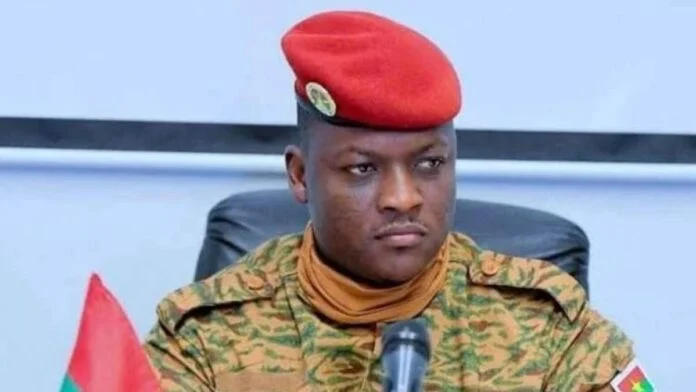Burkina Faso frees two Journalists after four months of forced military requisition

Two journalists in Burkina Faso have been released after enduring four months of forced military requisition, drawing renewed attention to the country’s deteriorating press freedom under military rule.
Guezouma Sanogo, president of the Burkinabè Journalists Association (AJB), and Phil Roland Zongo of Femina FM radio were reunited with their families this week in Ouagadougou.
Their detention began in March shortly after they publicly criticized the ruling junta for authoritarian overreach and suppression of dissent.
Officially, their conscription was enacted under the general mobilisation decree issued to bolster the fight against jihadist groups. However, Reporters Without Borders (RSF) contends that the decree has been manipulated to silence critical voices.
“These journalists were not targeted for their military expertise,” RSF stated, “but for denouncing how public media has been transformed into propaganda tools.”
Sanogo was arrested on 24 March at the Norbert Zongo Press Centre, while Zongo had been seized a day earlier from his home.
No official warrants were presented. Just days prior, both men had spoken at an AJB congress demanding the release of fellow journalists who had either been forcibly requisitioned or had disappeared. They also condemned escalating attacks on press freedom.
Their ordeal is not isolated. Boukari Ouoba, AJB’s vice-president, was arrested the same day as Sanogo.
On 26 March, journalist Luc Pagbelguem of BF1 TV was also abducted after reporting on the crackdown. All were released between 17 and 21 July following months of unexplained detention. BF1 commentator Kalifara Séré reappeared on 11 July after being held for over a year.
According to RSF, the pattern of arrests amounts to systematic harassment of independent journalists amid the junta’s tightening grip on public discourse. The military regime, led by Captain Ibrahim Traoré, has faced increasing criticism for its broad use of the mobilisation decree, in force since April 2023. Initially intended to strengt anti-terror operations, the measure is now seen as a tool to neutralize dissent, civilian or military.
At least two journalists reportedly remain “on the front lines” with no clear information about their status. RSF is urging the Burkinabè authorities to disclose their whereabouts and cease the enforced silencing of the press.
Despite the recent releases, the broader climate for journalism in Burkina Faso remains deeply troubling. Arbitrary arrests, forced conscriptions disguised as patriotic duty, and a rising culture of intimidation have made objective reporting increasingly dangerous.
In a nation battling a deadly jihadist insurgency, press freedom must not be sacrificed. Instead, it should be recognized as a vital safeguard against abuses of power and authoritarian drift.
About The Author
dailymailafric
I am an avid African news observer, and an active member of Daily Mail Africa.
I’m Passionate about staying informed on diverse topics across the continent,
I actively contribute to publishing on political, economic and cultural developments in Africa.



